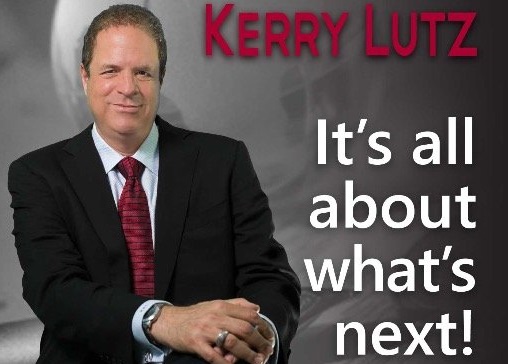Russian Born Money Manager Endorses LOOMIS Gold Silver Storage
from Silver Doctors:
 “To achieve long term bullion depository success, one must understand the risks one assumes with…”
“To achieve long term bullion depository success, one must understand the risks one assumes with…”
Always nice to have one’s own confirmation bias validated, especially with critical matters like choosing the safest gold silver bullion depository service for upper middle class and higher net worth gold silver bullion owners. Yesterday was indeed one of those examples.
Russian born money manager, Simon Mikhailovich, in Real Vision’s free 20/20 newsletter confirmed what we have indeed stated in multiple medias and within educational sections of our new website (e.g. 1, 2, 3).
Keep in mind Simon’s gold bullion investment clients are most likely financial institutions, family offices, hedge funds, elite estate planners, etc. Thus his firm unlike ours, likely remains the middleman on such bullion storage accounts.
Yet he explicitly name drops 4 specific silver and gold bullion logistics and vaulting providers which are indeed the most respected names of our industry. Yet one bullion storage firm alone, still sets itself apart in terms of quality service combined with a reduced counter-party risk offering.
The following are a few enlightening excerpts from said newsletter and Simon himself:
Simon’s suitcase was so heavy, the wheels cracked as he lugged it down the sidewalk.
“How the heck did I end up here?” he wondered. An hour ago he was sitting at the bank, like normal. Now here he was dragging around a suitcase full of gold in the city.
For years the bank had held this substantial pile of gold in custody for Simon. But today was different. Today Simon’s banker said he was sorry, but the bank can’t hold the gold anymore.
“But we’d be happy to help you trade stocks and bonds,” the banker added. (Trading, as we all know, generates fees for the bank. But there’s no money in holding gold – it just sits there.)
Physical gold is a unique financial asset. It isn’t like cash, or stocks, or Bitcoin, or bonds, or even the GLD ETF, which tracks the price of gold. All these assets can be transferred electronically. All it takes is a mouse click to move $10,000 cash or 100 shares of Apple stock from one owner to another.
Gold, on the other hand, is a real, hard asset. If you need to move it, you have to physically move it, as Simon experienced the hard way.
Simon is no “gold bug.” Far from it. He’s a professional investor and co-founder of a money management firm that raised over $2.5 billion. If you’ve with been with Real Vision for long, you’ll recognize his full name: Simon Mikhailovich. His lively conversations with Real Vision co-founder Grant Williams are an audience favorite.
Simon recently sat down for a podcast interview with Grant. In it they dig deep into a crucial question that most investors don’t give much thought to: What is the real purpose of gold? What’s the real point of owning it?
Whom do you trust with your money and assets?
It’s probably a longer list than you realize. If you own a stock, for example, you’re placing trust in your broker to secure your shares. Since everything is digitized today, you never take possession of the shares you own. Instead you’re trusting that your broker will keep good records of what belongs to you.
What’s more, you’re also placing your trust in the management team of the company whose stock you own. If you own Walmart, for example, you’re trusting Walmart’s execs to run the business well and to act in your best interests.
What about cash? If you deposit it in a bank, as most of us do, you’re trusting the bank to take care of it. And more importantly, you’re trusting the US government to preserve the value of those US dollars. The government and Federal Reserve, as you probably know, are constantly creating new dollars. Which is why a candy bar that cost 5 cents in 1920 costs $1.20 today.
The entire financial system is built on these interwoven layers of trust. What makes gold special is it’s the only financial asset on Earth whose value is NOT dependent on other humans acting in a trustworthy manner.
As Simon puts it, “Gold is the only financial asset that can be effectively stored and transacted without involving financial intermediaries and capital markets.” In other words, you can own, buy, and sell gold without the involvement of banks, brokerages, or any other Wall Street firms.
Unlike stocks, bonds, and cash, gold’s value doesn’t depend on a functioning financial system. Gold is valuable on its own. Not because it has mystical properties, but because of all the elements in the periodic table, it’s best suited for use as money.
Just as aluminum is ideal for making planes because it is light and strong, gold is ideal for money for the reasons Aristotle first described 2,000 years ago. Sound money must be durable, divisible, consistent, convenient, and intrinsically valuable.
“I want to own gold because it’s not connected to the financial system,” Simon told Grant. Indeed, gold’s independence from the system makes it the ideal insurance against a systemwide financial disaster.
“Do you realize that 75% of the American public’s net worth is in financial assets like stocks and bonds, and 25% is in real assets?” Simon asked. Americans, he points out, typically insure their real assets. If you own a car, you get auto insurance. If you own a home, you get homeowners insurance.
But what about the other 75% of the average American’s wealth that’s sitting in financial assets?
Imagine a financial disaster. Maybe a cyber attack shuts down the banks. Maybe a 2008-style chain reaction occurs where financial firms all get wiped out together.
Maybe the US government seizes citizens’ bank deposits, as the government of Cyprus did in 2013.
Under all these circumstances, no matter how bad things got in the financial system, physical gold would be unaffected. And while these scenarios may all seem far fetched, isn’t that the whole point of insurance? To protect against unlikely events that, if they were to happen, would totally upend your life?
Importantly, this is why gold kept in banks, or “paper gold” like the GLD ETF, are not a suitable replacement for physical gold. For proof look no further than the US government, as Simon explains:
Look, the United States government– do they keep their gold in the banking system? Do they own GLD? No, they keep it with the military. The United States’ gold is kept in vaults at West Point and Fort Knox… guarded by soldiers.
In other words, to have effective insurance against failure of the financial system, you must hold your gold OUTSIDE the financial system. As Simon puts it, “You don’t plug your backup generator into the wall socket.” You must either keep the gold in your personal possession or in the custody of people you trust.
There’s that word again – trust. Simon recalls the day his former bank expelled his gold, and he found himself standing on the street with a suitcase full of it:
They left me completely in the lurch. And so that led me down the path of understanding that when you create contingency plans… when you plan for situations that may come up during distress or disruption in the system… you have to really think who your counter-party is.
So where then should you store physical gold? Several Real Vision subscribers asked this very question after watching Simon and Grant’s interview, and Simon was kind enough to respond in the comments section:
There is a well-developed infrastructure of public and private secure logistics companies (Loomis, Brinks, G4S, Malca Amit, and others) that provide gold and silver vaulting services. These companies operate commercial vaults that have nothing to do with the banks. Not all such companies deal directly with private investors, but there are solutions, including my firm, through which private investors can get access.
Here’s the link to the video if you’d like to watch. And if you scroll down just below the video, you can read the impromptu “Q&A” Simon held with Real Vision subscribers.
See you next week.
—
To put a button on Simon’s secure logistics company name droppings. The likes of Brink’s, G4S, and Malca Amit often will not deal directly with private investors and high net worth bullion owners. Often these firms are set up in a B2B not a B2C format.
Call any of them and all too often you will find non-customer service orientated armored truck drivers answering the phone or worse a snobby bureaucratic deal desk that shies away and discourages dealing with individual clients directly.
What these three aforementioned bullion vaulting firms typically target are middlemen bullion storage situations. Where gold selling dealer middlemen service the accounts in a master sub-account scenario (varied risks increase exponentially, laid out here). These are the typical standard storage fare or offerings of the Bullion Vaults and Gold Moneys of the world (virtually any and all others too).
Profits perhaps best for them, their shareholders, and the gold selling account service middlemen. But certainly not best choices for the end users who in a typical middlemen vaulting scenario, have only added unnecessary layers of counter-party risks to their safe haven gold silver bullion depository ‘solutions’.



